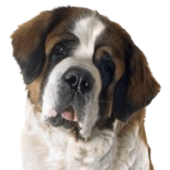





Have questions about your services?
We will email you back within a few hours on a working day
Transform your lawn
Talk to a lawn
specialist
Address
Name
Contact
Service
Our Blogs
Our thoughts, Views and Everything

Is Weed Control Safe For Your Kids And Pets?
Across Alberta, thousands of homeowners trust the work of lawn care professionals to service their lawn all season long. Companies make this happen by using synthetic fertilizer and weed control, and organic additives. While many companies take precautions to ensure your treatments are safe for everyone in your household, there are companies that don’t disclose the proper information.
In this case, the proper information involves ensuring everyone knows how to safely work with weed control products. By the end of this article, you will have the tools you need to safely apply weed control yourself, or you’ll know the specific questions to ask the lawn care company to ensure your children and pets will always be safe while you enjoy a beautiful lawn.
To keep this simple, we will categorize weed control into two types: selective and non-selective. Selective weed control means that the active ingredients within the product focus on killing some vegetation, but not ALL vegetation. The herbicide, 2,4-D, is a great example of this as it kills broadleaves but does not harm grass type plants. Non-selective herbicides must be used with extreme care because they will kill 99% of the vegetation it touches, including your lawn, flowers, and vegetables.
What To Ask Before You Hire A Weed Control Company
-
Is Your Weed Control Safe For Children And Pets?
- Them simply saying “yes” is not good enough. The right answer should include the information to ensure risks have been mitigated as much as possible. It’s important to note that almost every company uses the same weed control (2-4D herbicide) for selective lawn care herbicide. There isn’t any other product on the market for lawn care weed control.
-
How Long Should Pets Be Kept Off The Lawn After Each Application?
-
Make Sure The Lawn Care Company Puts Down A Sign After Each Application
-
Are Your Technicians Certified For Herbicide Applications In Your Province?
- They need to be certified to legally spray herbicide on your property. Proper certification means they’ve done their homework and have been thoroughly tested on their knowledge.
These are minimal standards and if the company you’re asking cannot give you a direct answer, move on. There are plenty of great options for lawn care companies and you want to make sure they’re doing everything they can to keep the process safe and effective.
Safety Precautions Before You Apply Weed Control
- Make sure you’re wearing nitrile/latex gloves, safety glasses, and non-porous shoes
- Read the labels carefully and thoroughly on the product you’re using
- Keep your pets and children off the lawn until the product has completely dried. You should stay off the lawn until the following day as a general rule of thumb
- Put out some sort of indication that you’ve sprayed your lawn so that people walking by keep their pets away from sniffing your lawn

Safety Pre Cautions for Selective Weed Killer Products
These will be the products lawn care companies will use to kill the weeds within your grass areas. The active ingredient generally is 2,4-D with some exceptions for the stronger solutions used by some companies.
2,4-D kills broadleaf weeds which are your typical dandelions, thistle, clover, chickweed, and creeping Charlie weeds. This herbicide is typically in a liquid form that is foliar applied. This means that it enters the weed through the pores on the leaves.
2,4-D is commonly sold as either a concentrate, where you mix it yourself with water, or a diluted ready to go sprayer which you can start applying immediately. This active ingredient dates back to 1940 and has been rigorously studied since to ensure its safety. It kills the weed by messing with the ways the plant’s cells divide and carry nutrients.
It kills it from the inside out which is why after an application, over the course of the next several days the weeds begin to discolour and whither.
When focusing on the safety of this product we need to consider how you may be exposed to it. You may come into contact with the herbicide through:
Ingestion
2,4-D is low in toxicity, but still a poisonous herbicide which should never be ingested. If it ever was drank from a bottle, especially as a concentrate, it’s critical to immediately call Poison Control.
Rule 1 will be not to drink the product, but this likely won’t happen to you as an adult. However, this is a serious concern for young children who come across the bottle in the garage, and for pets who are let on the lawn right after an application and they eat the grass.
Symptoms of 2,4-D ingestion are vomiting, diarrhea, headaches, and confusion. Extreme causes can be types of organ and kidney failure which is why you must always seek out immediate professional medical help if this product is ingested.
The weed control cannot be “licked up” or consumed by your pets / children once it has dried on the leaf of the weeds it was sprayed on. It is very important to stay off the lawn until the herbicide has dried. Minimal exposure shouldn’t be concerning, however extra precaution must be used for dogs and children who have a habit of eating grass.
As a general rule, if it’s a hot sunny day, herbicide can dry on a weed within a few hours. A conservative approach is to stay off the lawn for 12 hours after each application, in case it's a cooler day where there isn't much sun. Let your pets do their business on your deck or side of your home during this time.
A good practice is to spray your weeds then stay off the lawn until the following day. A lawn care company should always put down a sign on your front lawn to let people know they should refrain from the dogs smelling the grass as they walk by.
Absorbed Through Skin
2,4-D is not absorbed well through our skin. If product comes into contact with your bare skin, stop what you’re doing and go wash your hands with soap and warm water. Skin irritation, especially for those who have sensitive skin, is a common consequence of coming into contact with your skin.
The larger concern can be someone accidentally rubbing their eyes, or touching their mouth which is why it’s important to clean it off right after it happens. Eye exposure to 2,4-D can be extremely painful with additives within the weed control. If exposed, flush under a running tap, blinking continuously, and call Poison Control.
Inhalation
2,4-D is not absorbed well through the lungs and has a very distinctive smell. The smell is weird enough that it will turn you off from one whiff. There is no concern if you smell the product, but don’t be exposed to it any longer than you need to. If your get the product on your skin, make sure you thoroughly wash your hands before you engage in any type of smoking, as you could inhale the product directly.
Safety Precautions for Non Selective Herbicides
Most Common Selective Herbicides At The Store
The two active ingredients that make this type of weed control kill most types of vegetation are glyphosate, acetic acid and diquat dibromide. These ingredients work together to kill vegetation by blocking different types of pathways within the plant once the herbicide has been absorbed through the leaves.
Unless you were going for an entire lawn redo, you should never spray this on your lawn as it will kill your regular grass. Non-selective herbicide at your hardware store will come in the form of Roundup, WipeOut, and Path clear. The labels will instruct you to use the proper safety equipment when handling the chemical, and to keep pets and children off the lawn until the herbicide has dried on the leaves of the weeds.
However, we believe it’s the safest practice to not use non-selective herbicides if your pets or children have a tendency to ingest grass/plants on an ongoing basis just as these products tend to stay within the plant for prolonged periods of time to ensure a “total” kill of the plant. Non-selective herbicide should really only be used for killing grasses in your rock areas, killing weeds in your back alley, and killing vegetation before you do a complete redo of your landscape.
Never use it as “spot spray” for weeds in your lawn as this will result in dead spots everywhere (see picture below) and you don’t know if your pets are sniffing these areas out after the product has been applied.
For vegetable gardens, completely refrain from using herbicide. Focus on complete replacement of the soil or straight hand picking the weeds from your garden if weeds have started to takeover. Because you eat the vegetables, it’s not worth the risk of herbicide still lingering within the soil of the garden and being on the same vegetables you serve at dinner.
Certified Lawn Care Company's Weed Control
We are not a medical company testing and dictating if weed control is completely safe for our pets and children. However, we do believe in our experience than when handled with care and when taking the proper safety protocols, the risks associated with weed control are minimal. The benefits of a weed free lawn outweigh the inconveniences of staying off the lawn until dry.
Just like you follow the proper procedures when filling up your car with gasoline, which is a toxic product, you must follow the proper procedures when using weed control. If you’re doing it yourself, use safety equipment, follow the label instructions to the word, and have a backup for calling for help if somethings goes wrong. If you choose to let a company handle this type of work, make sure they are certified and have measures in place so that your family is always properly protected against the risks.
Always remember that having a weed free has much more to do with overall lawn health rather than just straight “weed killing”. A healthy lawn is a thick lawn which doesn’t give weeds a chance to grow in the first place. We hope your lawn care season is stress free and beautiful!
.png?height=600&name=Untitled%20design%20(5).png)
Hi, I'm Clare Ottenbreit
Clare Ottenbreit is the Yard Dawgs Content Manager. In her Marketing role she coordinates and manages content, social media engagement and blogs. Clare has a diploma in Journalism from the Southern Alberta Institute of Technology. In addition to working with Yard Dawgs, she is an avid hiker and runner.
Popular Posts
-
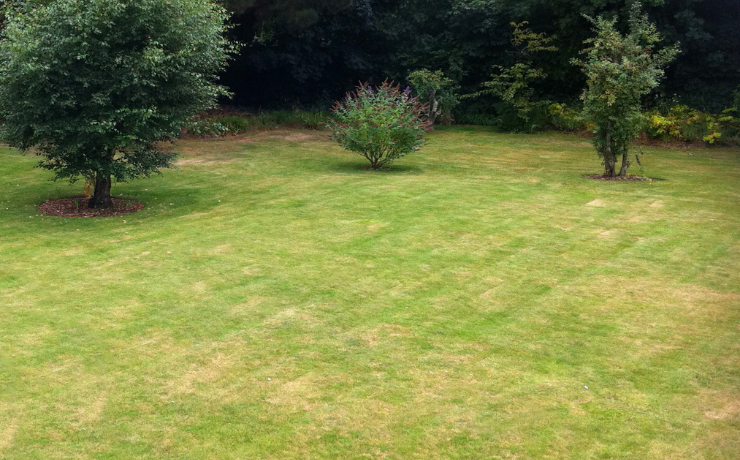 When Does Chinch Bug Damage Appear? After the first bout of extremely hot weather, chinch bug damage often appears. If there is living grass...
When Does Chinch Bug Damage Appear? After the first bout of extremely hot weather, chinch bug damage often appears. If there is living grass... -
 The silent killers from the East have unfortunately found their way to the West. The hairy, black, white and orange spotted insect known as the...
The silent killers from the East have unfortunately found their way to the West. The hairy, black, white and orange spotted insect known as the... -
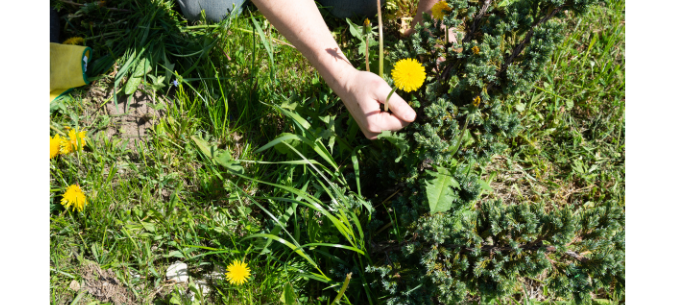 When To Put Weed Control On Lawn
When To Put Weed Control On Lawn -
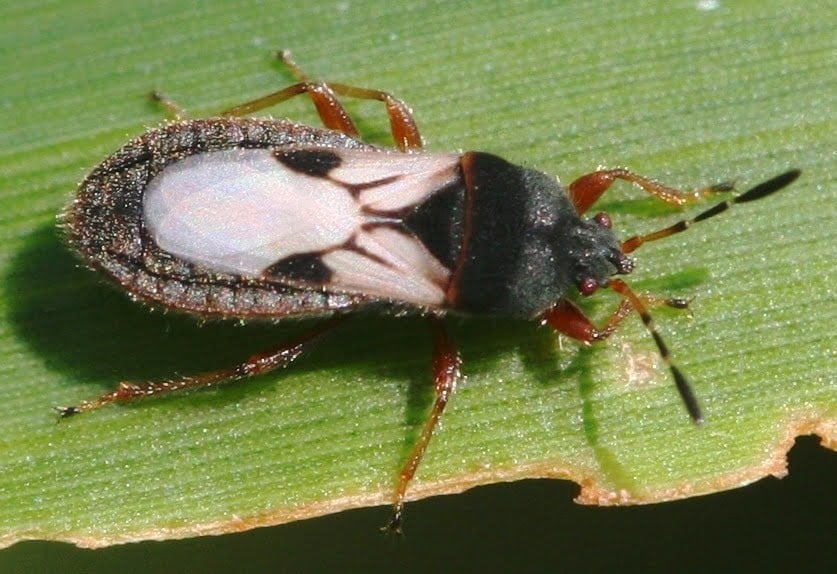 “I could look down into the thatch and see 30-40 of them in a 1’ x 1’ area.” Only a handful of lawn pests have the capacity to completely...
“I could look down into the thatch and see 30-40 of them in a 1’ x 1’ area.” Only a handful of lawn pests have the capacity to completely... -
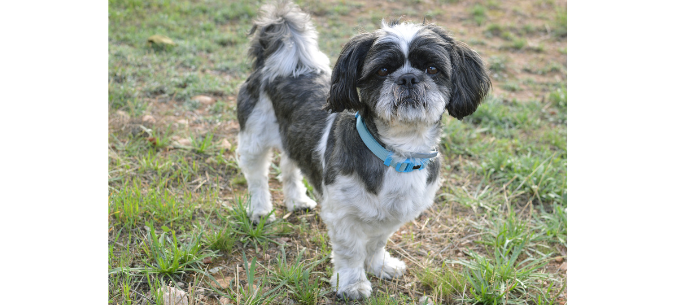 Your dog’s urine is killing your lawn because of the nitrogen content in their pee. Applying excess amounts of nitrogen to your grass will cause the...
Your dog’s urine is killing your lawn because of the nitrogen content in their pee. Applying excess amounts of nitrogen to your grass will cause the...




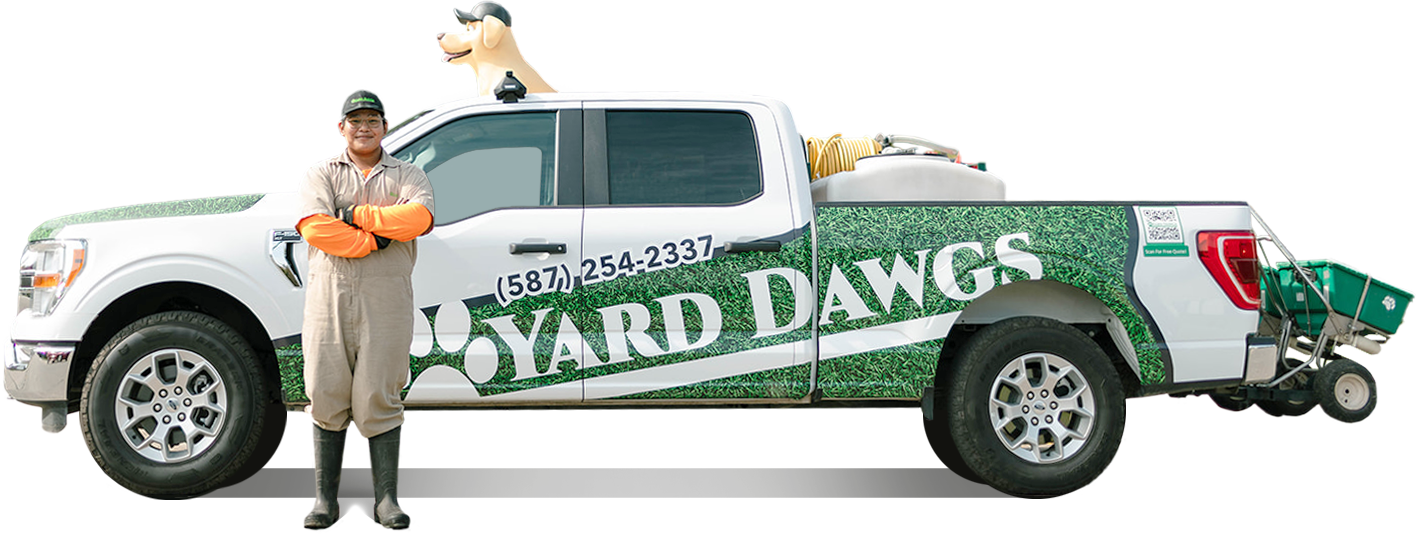
.png?width=670&name=Untitled%20design%20(19).png)
.png?width=670&name=Untitled%20design%20(20).png)

